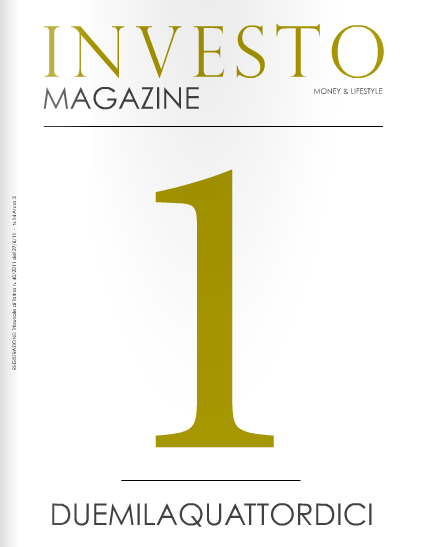Post-vacation syndrome?
Being in the doldrums, cranky, experience tiredness, having strong feeling of nostalgia for beaches and exotic places. The post-vacation depression syndrome hits one worker out of three. Doctors, nurses, temporary and part-time works are among the categories more at risk.
Some personal trainer suggestions on how to overcome the post-vacation syndrome
Anxiety, headache, bad mood, distress, disorientation are the most common symptoms, together with tiredness, lack of motivation, general malaise and muscle headache, lack of appetite, troubles in sleeping and lack of patience with colleagues and the world in general. Raise your hand who, at least once, has not suffered from the “post-vacation syndrome”: a type of stressed or blue mood that can affect you in the period after returning from a vacation, when the sea breeze and the wandering around in new cities have become a faded memory and you have to get back into the routine of work, traffic, phone calls, emails, urgent matters, bills to pay, grocery shopping and daily life routine in general.
Official statistics have not been released yet on what the Americans call “post-vacation blues”, even if, as stated by Dr. Claudio Mencacci, Psychiatrist and Director of the Department of Neurosciences at the Fatebenefratelli hospital in Milan, 35% of the population, especially between 25 and 45 years of age, is estimated to suffer from PVB. “The transition back to work can be particularly demoralizing for people who make long to-do lists for the summer but they don’t accomplish them. Nurses, doctors, social workers, people working front-line, people working on shifts are among the categories more at risk. Women are particularly effected by PVC because they divide their time between house and work, and moms are doing the countdown for the school to begin. The pace of life slows down on holiday, we make few exceptions in our eating habits, and often we do not exercise. Therefore, the sooner we get back on track, the sooner we will feel better. As per some experts, PVS could fall into two major categories: dysthymic disorder and adaptation. The first one mainly involves sleeping and endocrinology disorders, peripheral nervous system (digestion problems and circadian rhythm alteration). The adaptation disorder, on the other hand, involves the psychic / relationship sphere: difficulties in taking up responsibilities and handling relationships at work or in the family.
How to overcome the “post-vacation” syndrome and how to ease back in your everyday working routine? It depends on your personality. There are two possible reactions: “Independent, creative and positive subjects will come back to reality with self-confidence and determination, using the crises as a further incentive to their creativity: they will react like a horse stroked with a whip, trying to let everybody sees their better self. The other profile outlines a passive behavior and a lack of creativity; these subjects live the crisis as a stimulus to be depressed, with no motivation and with distress. A situation that could get worse, adding more general malaise, stress and fatigue. But do not be alarmed. There are few simple and fast tips to overcome the “post-vacation blues”. Ease back into your everyday routines gradually and if possible, rest a few days before getting back to work and do not overdo it the first week: it will be better to take it easy, stop when feeling anxious and take some days off whenever possible. Taking some nice walks and adding a daily exercise regime will help one to feel better because, as we all know, these activities increase the production of natural anti-depressants such as endorphins. Often just the idea of the weekend coming up will make you feel happier: as per a recent study carried out by Prof. Richard Ryan form the University of Rochester published in the Journal of Social and Clinical Psychology, the idea of the weekend coming up brings clear physical and psychological benefits, regardless the type of job, salary, habits, age or whether the worker is married or not.
Food is fundamental in reducing the effects of “post-vacation” syndrome, especially intestinal diseases such as irritable bowel syndrome, meteorism and constipation due to a poor and unbalanced diet carried out on holidays: it is necessary to reduce coffee, fried and spicy food, cured meats and milk as well as overeating; green light for fruit outside meals. It is advisable to have small meals throughout the day based on simple ingredients and well-done cooked food, to drink plenty of natural water, to have several servings of fruits and vegetables, lean meats and fish. The omega-3 fatty acids, found in fatty fish (mackerel, codfish, swordfish, tuna, trout, sardines and herrings) but also in grain products, nuts and legumes, are source of antioxidants as they prevent free radical damages and they have a trophic effect on the central nervous system, helping to improve the quality of sleep, mood, memory and the capacity to concentrate.
The intake of probiotic products after returning from vacation (yogurt is a good source of probiotics) will limit the production of flatulence and will restore a healthy intestinal flora.Morale sotto i tacchi, nervosismo, abulia e tanta nostalgia di spiagge e posti esotici. La depressione post-vacanze colpisce un lavoratore su tre. Tra le categorie più a rischio medici, infermieri, precari e lavoratori part-time.
Come sopravvivere al rientro nei suggerimenti del personal trainer.
Ansia, emicrania, umore nero, irritabilità e sonnolenza sono i sintomi più comuni. A cui si possono aggiungere apatia, abulia, debolezza fisica e dolori muscolari, inappetenza, disturbi del sonno e una forte dose di nervosismo, verso colleghi e verso chi ci sta vicino in generale. Alzi la mano chi almeno una volta nella vita non ha sofferto di “sindrome da rientro”, quella leggera forma di depressione che colpisce dopo le vacanze, quando la brezza sulla spiaggia e il girovagare in una nuova città diventano un ricordo sbiadito e i ritmi di vita devono necessariamente riadattarsi al solito tran-tran quotidiano: ufficio, traffico, telefonate, e-mail, urgenze, bollette da pagare e corsa in massa al supermercato per riempire il frigo.
Statistiche ufficiali su quella che gli americani chiamano “post-vacacion blues” non ce ne sono, anche se, come sottolinea lo psichiatra Claudio Mencacci, direttore del Dipartimento di neuroscienze dell’ospedale Fatebenefratelli di Milano, sembra soffrirne “ormai circa il 35% della popolazione, con maggior incidenza tra i 25 e i 45 anni”. I più colpiti sarebbero chi riponeva nel periodo di ferie grandi aspettative che poi sono andate deluse. Tra le categorie più a rischio gli infermieri, i medici e tutte le altre professioni impegnate nell’assistenza sociale, che hanno rapporti con gli utenti, ma anche chi lavora su più turni. Vittime soprattutto le donne che si dividono tra casa e lavoro e, se sono anche mamme, ora fanno il conto alla rovescia dell’inizio della scuola.
In vacanza i ritmi sono diversi, siamo più inclini agli strappi alle regole nell’alimentazione, spesso non facciamo attività fisica. Per questo, prima ci si mette in carreggiata e prima ci si sentirà meglio.
Due, secondo gli esperti, le grandi categorie in cui si può manifestare lo stress da rientro: il disturbo distimico e quello dell’adattamento. La prima categoria è principalmente legata ad alterazioni della sfera somatica. Si tratta dunque di disturbi del sonno, disturbi di carattere endocrinologico, del sistema nervoso periferico (come difficoltà digestive o alterazione dei ritmi circadiani). Mentre invece l’area del disturbo dell’adattamento riguarda la sfera psichica-relazionale e comporta difficoltà e fatica nell’assunzione della responsabilità, difficoltà nella gestione dei rapporti lavorativi e intrafamiliari.
Come fronteggiare al meglio il disturbo da rientro e riprendere confidenza con il proprio “io” lavoratore? Dipende dalla personalità. Sono due le reazioni possibili: “Le persone indipendenti, creative e costruttive torneranno fiduciose e padrone di sé e utilizzeranno lo schema crisi come un ulteriore stimolo alle loro doti creative, in altre parole reagiranno come un cavallo che riceve una sferzata, cercando di mettere a disposizione degli altri la parte migliore della propria personalità. L’altro profilo è quello in cui rientrano le persone ‘campo-dipendenti’, passive, con grave mancanza di creatività, che sentono la crisi come uno stimolo depressogeno, demotivatore e portatore di sofferenza. Una situazione che aggraverà il loro disagio, generando ulteriore stress e fatica.
Ma non c’è bisogno di allarmarsi, perché con piccoli accorgimenti lo stress post-vacanza si può superare, facilmente e velocemente. Riprendere le proprie abitudini con gradualità, se possibile restando qualche giorno a riposo al rientro in città, e di non sovraccaricarsi di impegni nella prima settimana di lavoro: meglio prendersela con calma e staccare quando si inizia ad avvertire agitazione, magari ritagliandosi qualche giorno di relax appena si può. Aiuta a stare meglio anche passeggiare all’aria aperta e fare attività fisica, che, come si sa, aumenta la produzione di endorfine, anti-depressivi naturali. E spesso basta l’avvicinarsi del fine settimana per recuperare un po’ di serenità: secondo un recente studio del professor Richard Ryan dell’Università di Rochester pubblicato dal Journal of social and clinical psychology, la sola idea del weekend ha un effetto benefico sul fisico e sulla psiche, indipendentemente dal tipo di lavoro svolto, dallo stipendio, dalle abitudini, dall’età e dal fatto che il lavoratore sia sposato o meno.
L’alimentazione ha un ruolo importante nel ridurre i sintomi della sindrome da rientro, in particolare i disturbi intestinali, come la sindrome dell’intestino irritabile, il meteorismo o la stitichezza, e soprattutto se in vacanza ci si è nutriti in maniera disordinata e sbilanciata: vanno limitati il caffè, i fritti, gli insaccati, l’alcol, i cibi molto piccanti e il latte, così come gli eccessi, mentre è consigliabile consumare la frutta lontano dai pasti. E’ preferibile fare piccoli pasti durante la giornata, composti da piatti semplici, poco elaborati e ben cotti, introducendo molta acqua naturale, frutta e verdura, carni magre e pesce. Gli acidi grassi omega 3, contenuti nei pesci grassi (sgombro, merluzzo, pesce spada, tonno, trota, sardine, e aringhe), ma anche in cereali, noci, legumi, hanno proprietà antiossidanti perchè inibiscono la formazione dei radicali liberi e svolgono un’azione trofica sul sistema nervoso centrale, aiutando a migliorare la qualità del sonno e dell’umore e favorendo la concentrazione e la memoria.
Quanto ai i probiotici, di cui è ricco lo yogurt, è utile assumerli sempre al ritorno dalle vacanze, per limitare la produzione dei gas intestinali e ripristinare l’equilibrio della flora batterica intestinale.
» 2013 - Numero 5 » Post-vacation syndrome?Disturbi da rientro






 youhost
youhost